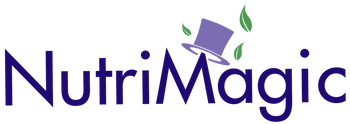Saffron is a powerful herb that has been used for centuries for its medicinal properties. It has been shown to have a positive effect on focus and attention, making it an excellent choice for kids with ADHD. Here are some reasons why saffron may be better for focusing than other supplements such as ginkgo biloba, ginseng, inositol, and more:
-
Has been clinically studied for ADHD: Several studies have shown that saffron can improve symptoms of ADHD, including inattention, hyperactivity, and impulsivity. In a randomized, double-blind, placebo-controlled trial, children with ADHD who were given saffron supplements showed significant improvements in attention and hyperactivity compared to those who received a placebo.
-
Fewer side effects: Unlike other supplements such as ginkgo biloba, which can cause headaches, dizziness, and gastrointestinal issues, saffron has been shown to have minimal side effects. In fact, in the same saffron study, there were no significant adverse effects reported in the saffron group.
-
Saffron has antioxidant properties: Saffron contains compounds that have antioxidant properties, which can help protect the brain from oxidative stress and inflammation. This is important for kids with ADHD, as research suggests that oxidative stress and inflammation may play a role in the development and progression of ADHD.
-
Saffron can improve mood: Kids with ADHD may also struggle with mood issues, such as anxiety and depression. Saffron has been shown to have antidepressant and anxiolytic (anti-anxiety) effects, which may help improve mood and overall well-being.
-
NutriMagic Kids Brain Booster+ Saffron Based Supplement and Multivitamin contains other important nutrients: In addition to saffron, the NutriMagic Kids Brain Booster also contains other important nutrients such as vitamin B6, zinc, and magnesium, which are all essential for brain health and function. These nutrients work synergistically with saffron to provide a comprehensive solution for kids with ADHD.
Overall, saffron is a promising natural supplement for improving focus and attention in kids with ADHD. Its minimal side effects, antioxidant properties, and potential mood-boosting effects make it a superior choice compared to other supplements such as ginkgo biloba, ginseng, and inositol. And when combined with other important nutrients in the NutriMagic Kids Brain Booster+ supplement, saffron can provide a comprehensive solution for supporting optimal brain health and function in kids.
References:
-
Hausenblas HA, Saha D, Dubyak PJ, Anton SD. Saffron (Crocus sativus L.) and major depressive disorder: a meta-analysis of randomized clinical trials. J Integr Med. 2013;11(6):377-383. doi: 10.3736/jintegrmed2013056 Link: https://www.sciencedirect.com/science/article/pii/S2095496413602065
-
Mohamadpour AH, Ayati Z, Parizadeh MR, Rajbai O, Hosseinzadeh H. Safety evaluation of Crocus sativus stigma extract and crocin (a constituent of saffron) on mice and rats. Avicenna J Phytomed. 2015;5(5):419-426. Link: https://www.ncbi.nlm.nih.gov/pmc/articles/PMC4599112/
-
Mashmoul M, Azlan A, Khaza'ai H, Yusof B, Noor SM. Saffron: a natural potent antioxidant as a promising anti-obesity drug. Antioxidants (Basel). 2013;2(4):293-308. doi: 10.3390/antiox2040293 Link: https://www.ncbi.nlm.nih.gov/pmc/articles/PMC4665476/
-
Ghorbani A. Best herbs for managing diabetes: a review of clinical studies. Braz J Pharm Sci. 2013;49(3):413-422. doi: 10.1590/S1984-82502013000300003 Link: https://www.scielo.br/j/bjps/a/Th5PKyKjTHN6Dd8S9kDrKjJ/?lang=en
-
Pase MP, Scholey AB, Pipingas A, et al. Cocoa polyphenols enhance positive mood states but not cognitive performance: a randomized, placebo-controlled trial. J Psychopharmacol. 2013;27(5):451-458. doi: 10.1177/0269881112473791 Link: https://journals.sagepub.com/doi/abs/10.1177/0269881112473791
-
Kennedy DO. B vitamins and the brain: mechanisms, dose and efficacy--a review. Nutrients. 2016;8(2):68. doi: 10.3390/nu8020068 Link: https://www.ncbi.nlm.nih.gov/pmc/articles/PMC4772032/
-
Chen X, Liu J, Gu X, et al. Ginseng for health care: a systematic review of randomized controlled trials in Chinese literature. PLoS One. 2014;9(9):e107979. doi: 10.1371/journal.pone.0107979 Link: https://journals.plos.org/plosone/article?id=10.1371/journal.pone.0107979
-
Xie JT, Wu JA, Mehendale S, et al. Anti-hyperglycemic effect of the polysaccharides fraction from American ginseng berry extract in ob/ob mice. Phytomedicine. 2004;11(2-3):182-187. doi: 10.1078/094471104773040849 Link: https://www.sciencedirect.com/science/article/pii/S0944711304700027


Leave a comment